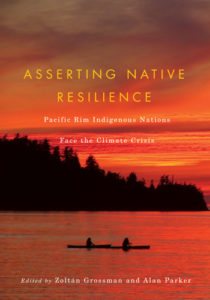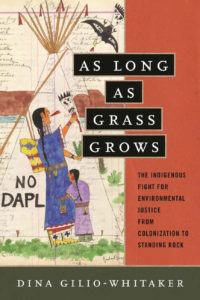Below are recommended for research or for group reading assignments. We encourage you to add comments and reviews on any of the materials listed below. Input from people who have used and reviewed the materials will be helpful to others.
If you have any recommendations on books or publications on First/American Indian Nations and would like to make the info available to others, contact Deb Cruz at dwcruz@comcast.net with author and title and we’ll include it here on the site.
Many of the authors listed below have written several books including Vine Deloria, Jr., Sherman Alexi, Paula Allen Gunn, Walter Echo-Hawk and others. Feel free to search the internet for these authors and their other works.
Other resources for Native include:
- NativeWeb Resources: Book Sellers and Publishing
- American Indian Library Association
- Indigenous Americas – University of Minnesota Press
- Native American Rights Fund Publications
- National Indian Law Library(Native American Rights Fund)
- Bibliography / Book List of Northwest Ethnic Heritage (Washington State & British Columbia)
Review the Recommended Reading List here.
See below for new books and publications.
Unitarians and the Bond Mission School
Journal of Universalist History Volume XLI (2017-2018) Special Issue: 2016 Convocation of Unitarian Universalist Studies Editor: Kathleen R. Parker 2018, Unitarian Universalist History and Heritage Center
The Montana Industrial school for Indians at Romona Ranch, 1886-1897
by Dana Capasso Stivers, pgs. 38 - 65 Dana Capasso Stivers has, so far to date, offered up one of the more accurate versions of the American Unitarian Association and it's role in the Indian boarding school tragedy, specifically with the Montana Industrial School for Indians, better known as the Bond Mission School. Many of the other, more recent writings on the Bond Mission School skirted around and glossed over a number of issues and attitudes of our predecessors and their participation in aiming "to assimilate the Crow people into Anglo-Saxon society and to dismantle their culture through various forms of symbolic violence."
CHANGING THE NARRATIVE ABOUT NATIVE AMERICANS A GUIDE FOR ALLIES
Being Native American may mean being deeply involved in protecting, teaching and advancing the knowledge and traditions of one’s tribe(s). Or it may mean being less connected to tribal communities while maintaining unique Native American identities in other ways within the larger society. There is no “one way” to be Native American. Every tribe and tribal citizen has a unique culture, history and tradition, and many people identify more as a citizen of a specific tribe(s) than collectively as Native American. Even with such a strong identity, contributions and presence, however, contemporary Native Americans are largely invisible to the rest of the country. Native American voices are rarely heard in the news, in popular culture or in history books, and what little isreflected in those venues about Native issues and cultures is riddled with misinformation and confusion. A group of diverse Native and non-Native stakeholders from across the country has conducted unprecedented research and developed a strategy to change this situation as part of an initiative called Reclaiming Native Truth. This initiative is designed to eradicate harmful and toxic narratives, stereotypes, structural and institutional racism, dehumanization, and the invisibility of Native Americans. It aims to increase access to opportunities and rights and to ensure that Native Americans live in a society where they are celebrated as a vital part of the fabric of the United States as both leaders and key contributors. Read more: RNT - Guide for Allies
Reclaiming Native Truth - Lessons Learned from Standing Rock
The California Native American Genocide - Two books reviewed
The first comprehensive treatments of this subject were published very recently, in 2012 and 2014. These are An American Genocide: The United States and the California Indian Catastrophe, 1846-1873 by Benjamin Madley, and Murder State: California’s Native American Genocide, 1846-1873 by Brendan Lindsay. . . .
Over the past few months, I’ve read these books and have been working on this report. More than any other aspect of local history I’ve written about, this has been the most difficult. This is not because these books are not well-written. It is because this topic is, to quote Madley, “unrelentingly grim.” This project has taken me longer than normal because it is emotionally very heavy. It is profoundly disturbing and unpleasant.
Read more here.
Our Moment of Choice
Asserting Native Resilience: Pacific Rim Indigenous Nations Face the Climate Crisis
 Zoltán Grossman and Alan Parker, Editors
Zoltán Grossman and Alan Parker, Editors
As Long as Rivers Run - Recommended Film - First American Indian Nations
As Long As Rivers Run tells the story of the struggles of the Nisqually Tribe, and of Billy Frank, Jr., in particular, who led in the defense of the tribe’s fishing rights that were established by treaty in 1854 but denied. This tale of persistent personal and tribal bravery in the face of government brutality culminated in the Bolt Decision of 1974. The decision confirmed the Treaty provision that First American Indian Nations in Washington have claim to 50% of the salmon take in Washington State each year. Consequently, they must have an equal voice in salmon sustainability planning. The Nisqually Tribe’s efforts to preserve salmon spawning streams and surrounding natural habitats, through advocacy of environmental protection policies are enhanced by the work of the non-profit organization, Salmon Defense.
